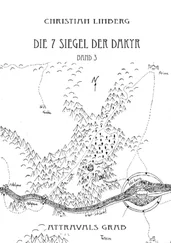“I’m going to die anyway,” Joanna answered. It was the first time she’d uttered that thought out loud. It seemed to give it an awful legitimacy.
Galina shook her head. “You shouldn’t say that.”
“Why not? It’s true. They’ll kill me like they killed Maruja and Beatriz. You don’t want to talk about it. They killed them in here—in this room. I can show you their blood.”
“Her cold’s worse,” she said, referring to Joelle, continuing to avoid any mention of the two ghosts still hovering in the room.
“Yes, her cold’s worse. And her mother’s still chained to a wall. And we won’t talk about two murdered women.” Joanna’s own voice seemed alien to her now—flat, emotionless. It’s hope, she thought—she’d lost it out there in the jungle.
“I’m going to put her to sleep,” Galina said.
“Yes. Wonderful idea. While you’re at it, put me to sleep.”
Galina winced and rubbed her left arm.
Nurse. Kidnapper. Friend. Jailer.
“I don’t understand you,” Joanna said.
“What?”
“I don’t understand. You. Why you’re here. Why you’re with these people. Killers. Murderers. You were a mother.”
Galina had turned to leave, but now she stopped, looked back at her. It was that word, Joanna thought.
Mother .
“You never finished your story,” Joanna said. “Tell me. I need a good story tonight. I do. I need to understand why.”
THIRTY-SIX
I need a good story tonight.”
Just the way Claudia used to say it to me because she didn’t want to go to sleep yet.
A story, Mama, she’d beg. A story.
Well, okay.
A story.
AFTER GALINA AND HER HUSBAND HAD LEFT THE BAR THAT NIGHT, they didn’t speak to Claudia again.
Sometimes the boy from La Nacional would call them.
There was a firefight with helicopter-borne Special Forces in the mountains. A new initiative by a just-sworn-in president who’d promised to get tough with the guerrilleros. The boy said Claudia was there—army officers reported a beautiful young girl in camouflage fatigues. Don’t worry, the boy said, she wasn’t hurt.
These government forays were infrequent and entirely for show. Getting tough on the guerrilleros, everyone knew, was simple posturing. There might be two tough factions in Colombia, but the government wasn’t one of them.
There was FARC, the Revolutionary Armed Forces of Colombia, on the left.
And on the right, the United Self-Defense Forces.
All names in these kinds of conflicts were exercises in irony. Self-Defense —as if they’d been punched in the nose and were simply defending themselves from a playground bully. Maybe that’s what some of them believed they were doing.
Just not the man who ran it.
If you wanted to understand what happened to Claudia, you had to understand him too. If you saw Claudia tripping down the alleyways of Chapinero as a sensitive and easily bruised eight-year-old, you had to see him growing up in Medellín and doing a generous share of the bruising. They were counterparts. If Claudia was the light, he was the dark.
They were due to collide.
How do you explain a Manuel Riojas?
Bogeymen aren’t usually born, they just are. They lurk in the swamp of human fear and misery. They don’t have beginnings, just ends. But even then, they never go quietly, not before they leave behind desolate swaths of scorched earth.
Real bogeymen do have beginnings. They have birthdays and confirmations and school graduations. They live in neighborhoods, not swamps. Manuel Riojas grew up in the grimy Jesús de Navarona neighborhood of Medellín.
Galina had visited relatives there once. She remembered how a steady gray rain washed the garbage downhill. It was possible she’d driven by Riojas himself—later she’d wonder about that. If he might’ve been carjacking by then. If he might’ve picked their car—pointed a pistol through the window and ended everything before it began.
It’s said he grew up on the stories.
The legends of Colombia’s bandidos . Desquite and Tirofijo and Sangrenegra. Revenge, Sureshot, and Blackblood. Galina came to believe that countries where much of the population is poor and oppressed are doomed to worship the wrong people. People who steal from the rich, even if they never actually give anything back to the poor. It doesn’t matter—they are poor. Or were. They might be vicious, murderous, clearly psychotic. They’re victimizing the victimizers. That’s enough to make them folk heroes. Enough to make children who grow up in uncertain circumstances daydream of becoming them.
Riojas’ criminal beginnings were murky. It’s said he went back and had police files altered, court records erased, various acquaintances from his early life eliminated. It’s known he was arrested at least once by the time he was fourteen—possibly for petty theft. It’s believed he bartered fake lottery tickets, hijacked cigarettes, stole cars, before moving on to something infinitely more lucrative. The particular scourge of their godforsaken country: drugs. Specifically, coca. He started as a runner, a small dealer. He was apparently a favorite of the local contrabandista, who made the fatal mistake of trusting him, promoting him through the ranks. Somehow the severed head of this contrabandista ended up stuck on a pole on a mountain road outside Medellín. Somehow Riojas ended up in charge of the Medellín cocaine trade. This was generally acknowledged to be the first exhibition of Riojas’ particular business ethos. He didn’t compete with rivals. He murdered them. He did it in ways meant to discourage others. Children were murdered in front of their parents. Mothers were raped in front of their husbands. Enemies were tortured and mutilated, their freshly slaughtered corpses placed on public display. More fodder for the newspapers.
Property wasn’t excluded. Warehouses, factories, competing cocaine fields, were torched and obliterated.
The stories grew; the legend took form and substance.
He rose to nearly unimaginable heights.
That’s necessary for a bogeyman. To tower over the cringing. And they did cringe. Not just rival gangs, the Ochoas, the Escobars, who soon disappeared in a series of vicious and prolonged bloodbaths. But the familias who pulled the strings. They bowed down too. Riojas ate the heart of his enemies, then became them. He was elected state senator. They say he’d promised this to his mother. Respectability. They say he’d pledged this to the idols he kept in a secret chapel on one of his haciendas. Santeria, they whispered, the bastard religion practiced throughout much of the country outside Bogotá.
But rulers demand more than obedience. They demand armies. The one belonging to the government was toothless. It didn’t take any particular intelligence to realize that the only army worth fighting lived in the mountains north of Bogotá and called themselves FARC. They spouted Marxist mumbo jumbo about toppling the elite, talked about the people as if the people actually mattered. Under different circumstances, Riojas might’ve sympathized with them, even joined them. After all, he came from the same impoverished background. Now he was another successful capitalista trying to protect his investments. They were the enemy.
He armed his own militia. He gave his most trusted executioners titles. Captain. General. Major. That made them more or less an army. He demanded money from the five familias to fund it.
Now they could have a real war.
Читать дальше












